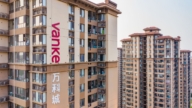【新唐人2011年6月25日讯】据北京市海淀区委海淀园工委统计,目前中共组织已覆盖当地3000多家企业,党支部802个、党员近2万名。中央高层吸纳商界精英,被认为是“障眼法”。是让“金权体系”更为紧密的合理化做法。而中共吸收精英入党,还表现在各行各业,律师就是其中一个。
北京一家民营公司,中共党员占了一成,主要是中层或以上职员,党支部书记由公司董事长兼任。香港《明报》报导说,像这家公司这类“党员总裁”、“党员高管”的例子,在高科技民企聚集的北京中关村并不少见。
据说,中关村一些私企老板起初并不支持中共组织发展,海淀园工委主动在民企老板中评选“党建之友”,在荣誉和物质上给予奖励。这些做法受到中南海高层注意,主管党务的政治局常委习近平曾特别批示肯定,报导说,这透露出中央高层重视吸纳商界精英的动向。
不过,1989年,中共中央发布《关于加强党的建设通知》,其中规定民营企业主不能入党。中共十六大后开始并接受民营企业家入党,对此,“中国民主运动海外联席会议”主席魏京生曾经表示,中共接纳资本家是一个“障眼法”,其实是让“金权体系”更为紧密的合理化做法,也借此欺骗国际社会舆论,对国际社会作出“改革”的 姿态,换取“不必再对北京施压”的筹码。
魏京生强调,共产党早已成为中国大陆的既得利益集团,许多权力核心人物“家里都是一人做生意、一人当官”,借着特权优势赚进大笔钞票,同时 为彼此“互相保证”。
中共吸收精英入党,还表现在各行各业,律师也是其中一个行业。据了解,其实很多人是被动的。
大陆律师一:“律师事务所本身就是自己的,它本来应该是与共产党的组织之间不存在领导不领导的关系问题,(但是)律师事务所必须要接受(领导),那这些律师事务所不接受,在现行体制下,也办不到。领导的意思就要听他的。”
律师们的普遍感受是,中共成立的党支部是为了方便管控而已,并不是出于广大人民的利益。
大陆律师一:“现在党的利益至上,这是一个口号,那发展党支部也是在壮大党的队伍,这是共产党的追求。近年来有很多社会突发事件,很多律师参与,会让政府认为律师脱离了政府的管控,所以以建党支部这种方式来加强对律师的管控,是所谓的让这个社会和谐稳定的一个手段。”
《法国国际广播电台》报导表示,资本家能够入党不过是党国“创新社会管理”的一种手段,不过是不走极权主义、改走威权主义罢了。威权主义者可以根据需要,引诱某些人入党,必要时甚至可以强迫入党。威权主义之下,“党员证”向全民的开放与扩充,并不意味着它的合法性的增加,也不意味着执政者所代表的民意基础就越广泛,这只不过是执政集团的内部调整而已。
新唐人记者代静、黎安安、孙宁采访报导。
Accepting Elites to Party: A Camouflage?
According to the Beijing Haidian District Working
Committee, Chinese Communist Party’s organizations
have covered more than 3,000 enterprises,
with 802 party branches and nearly 20,000 members.
The CCP’s accepting business elites is considered
to be “camouflage" for combing power with money.
One example is that the CCP accepts lawyer elites.
In a private Beijing company, the CCP members
account for 10% of its employees.
The party secretary of this company is also its president.
Hong Kong based Ming Pao said, this kind of companies
with their presidents or CEOs being the CCP members
are not few in Beijing’s private high-tech enterprises.
Some private owners initially did not support the CCP’s
organizational development.
Haidian Working Committee actively elected “Party Friends"
among private bosses by giving them awards.
This practice aroused the central CCP’s attention.
Xi Jinping, the Politburo member, has affirmed the practice,
which shows the CCP’s trend of attracting business elites.
In 1989, the CCP Central Committee issued a notice,
disallowing private business owners to join the party.
After the 16th CCP Congress, the party started to accept
private entrepreneurs. Chairman Wei Jingsheng of
Chinese Democratic Movement Overseas Committee
said, it is a ‘camouflage’, combining money with power
more closely and deceiving international community
with a gesture of reform, so as to escape from
the international pressures on Beijing authorities.
Wei stresses that the CCP has become a group with
vested interests. Many of the party’s powerful figures
have one family member in business and one in power.
They collude and mutually assure to earn big bucks.
The CCP accepted elites from all walks of life, including
lawyers, although many were actually reluctant to join.
Lawyer 1 in China: “Law firm itself is privately owned.
It is not supposed to have any relationship with the CCP.
(But) law firms had to accept (CCP’s leadership),
none of them can survive without it.
The CCP wants the law firms to listen to its directions.”
Lawyers’ general feeling is that the CCP established
braches to facilitate their control, not service to people.
Lawyer 2 in China: “Now the party’s interests are above
everything else, this is a slogan. It is also for the growth
of the party to set up branches. In recent years,
many social unrests had many lawyers involved,
making the government to think lawyers are out of
government’s control. Building party branches to strengthen
the control of lawyers is a means to maintain stability."
Radio France Internationale reported that
accepting capitalists into the CCP is only a means for
“innovation in social management.”
It is nothing but redirecting from the totalitarianism
to authoritarianism. The authoritarians can lure, or
if necessary, force some people to join the party.
Under the authoritarianism, party membership is
open to all, but it does not increase its legitimacy,
nor does it have a broad support.
This is merely an internal adjustment of the ruling party.
NTD reporters Dai Jing, Li Anan and Sun Ning






























